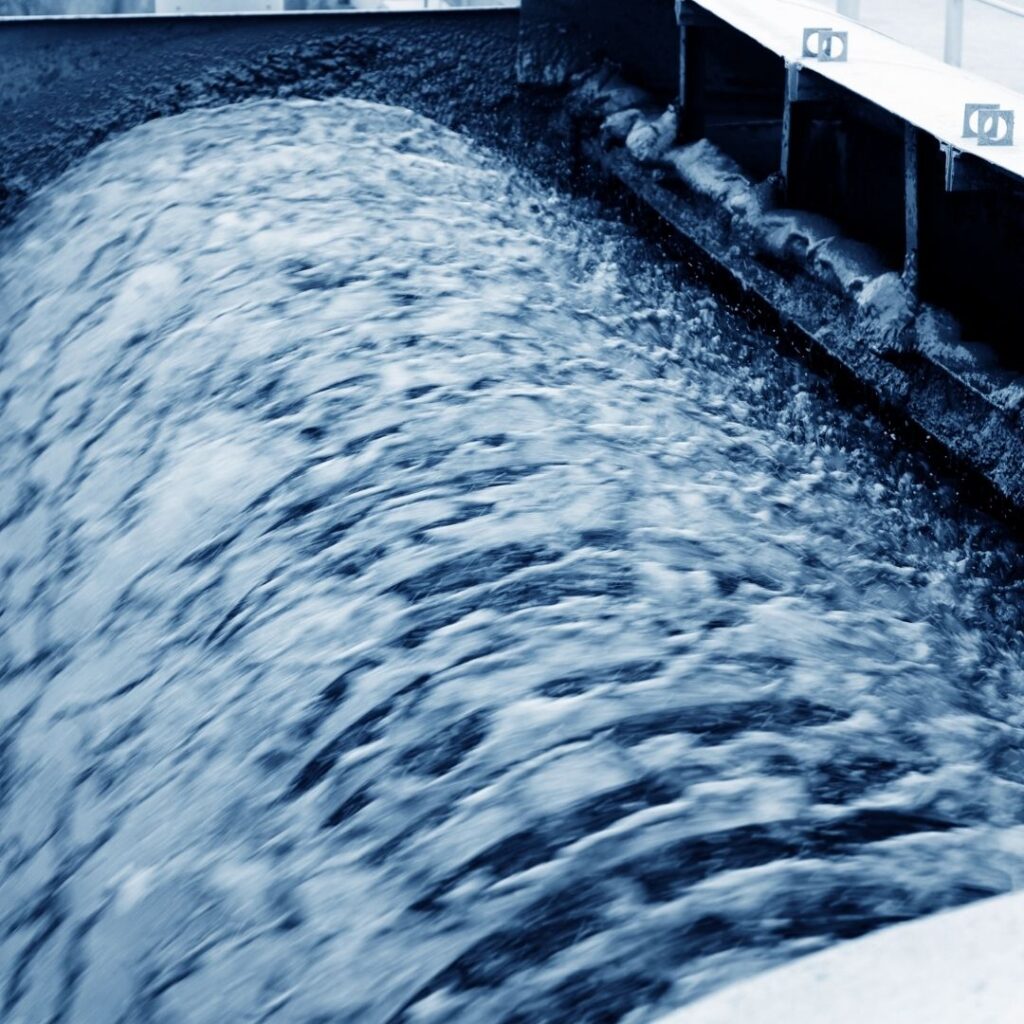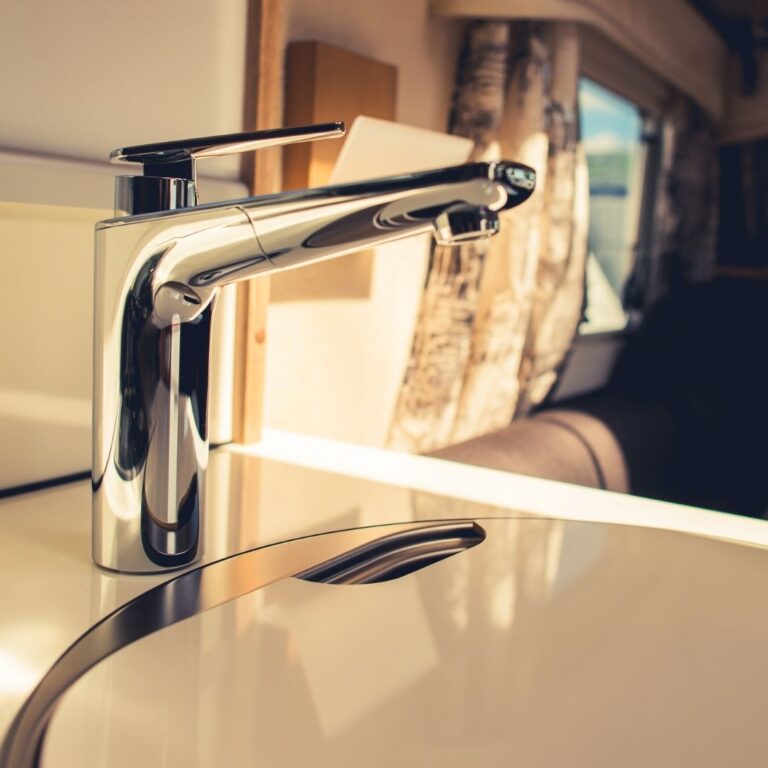What Are Water Treatment Chemicals: The Most Common

Water is essential for life, but it doesn’t always come to us clean. In fact, raw water from sources like rivers, lakes, and underground aquifers often contain impurities that can make it unsafe to drink or use. That’s where water treatment comes in. Water treatment is an essential process that helps provide communities with clean, safe drinking water. It allows for wastewater to be treated before being released back into the environment as well. This process typically involves a series of steps, including coagulation, flocculation, sedimentation, filtration, and disinfection.
For homeowners on public water sources, water is treated at a central plant by the local water utility. Treatment methods may include coagulation, sedimentation, filtration and disinfection. However, the specific processes used can differ between municipalities. Additional filtration in the home may be needed to further reduce contaminants like metals, particulates or microbes.
Private well owners have direct responsibility for water treatment. Well water quality depends on local geology and contaminants are common without the proper system. Issues such as high levels of iron, sulfur, or fluoride frequently require customized solutions. For this a drinking water filter is always the way to go as it addresses the peculiar issues of well water specifically. You can always check out my post on best and worst drinking water filter taps.
Residential systems from brands like Springwell and US Water Systems address these issues through filtration techniques including reverse osmosis, water softening and more. I recommend that you check out my post on comparison of their whole home water filter systems for more information. Choosing the right in-home filtration options ensures clean, healthy water for drinking and all uses.

What Are Water Treatment Chemicals: The Most Common
Chemicals play important roles in any water treatment process, helping to remove impurities, adjusting the pH levels and more. So today, I will be explaining what water treatment chemicals are, and sharing a roundup of the most common chemicals used in treatment plants worldwide. Why? Because access to clean drinking water begins at the tap. However, water quality can vary greatly depending on the source. Whether your water comes from a public municipal system or private well, certain treatment steps can help ensure it is safe for consumption and general use.
Certain chemicals help to purify water supplies and ensure water is clean for both drinking and everyday environmental needs. Common chemicals work to coagulate smaller particles together, reduce corrosion, adjust pH levels and more.
In the processes of water treatment, some of the common chemicals include:
Sodium Hydroxide
Also known as caustic soda, sodium hydroxide is one of the most widely used chemicals in water treatment. It works as an alkali that is used to adjust pH levels in water, raising them to reduce acidity. This helps prevent corrosion of pipes and storage tanks in the water supply. Sodium hydroxide is also used for other processes like wastewater treatment, where it balances pH levels before water is released back into the environment. It forms a soluble salt that is safe to release. In higher doses it can cause irritation, so protective equipment is worn by operators.
Alum and Ferric Chloride
Both alum (aluminum sulfate) and ferric chloride are metal salt coagulants that are very commonly used in water treatment processes. They work to remove suspended solids and other particulates from water by causing them to form larger particles through a process called coagulation. This makes them able to be filtered out later on. Both chemicals are approved by the EPA as safe for use in treating drinking water. Short term exposure to high levels can cause irritation, so protective equipment is worn by workers handling this chemical.
Hydrochloric Acid
Hydrochloric acid, also known as muriatic acid, is used as a pH adjuster like sodium hydroxide but works to lower pH in water rather than raise it. This helps to neutralize water and control pH levels. It is commonly used during water softening processes or when treating acidic waters. Like sodium hydroxide, contact with hydrochloric acid in high concentrations can irritate skin and eyes, so protective equipment must be worn. When diluted and used properly as part of water treatment, it poses minimal risks.
Chlorine
Chlorine is one of the most widely used disinfectants for water treatment. It works to kill bacteria, viruses and other microbes that may be present in water sources. Chlorine kills these organisms by destroying their cell membranes. It is added during many phases of water treatment like filtration or after water has been treated and disinfected again before entering the water supply. Chlorine leaves a residual in pipes that continues to keep water safe. While effective, it does produce harmful byproducts when reacting with organic matter, so alternatives like UV light are growing in popularity.
Activated Carbon
Activated carbon isn’t technically a chemical but is an excellent absorbent material used frequently in water treatment. It works through adsorption to remove tastes, odors, toxic chemicals and other contaminants present in water. Granular activated carbon is commonly used during filtration processes. Powdered activated carbon can also be added directly to water. It poses very minimal health risks when used properly for water treatment. Activated carbon is approved by the FDA and NSF for use in purifying drinking water.
Polyaluminum Chloride
Polyaluminum chloride, or PAC, is a variation on alum that is also used as a coagulant aid. It works similarly to alum and ferric chloride to clump together suspended solids and particles in water to help them be filtered out later. Some research has shown it may be more effective than alum alone. Risks are similar, with protective equipment worn, as exposure to high doses could potentially cause irritation. It is considered safe when used properly as part of the water treatment process.

Sodium Bisulfite
Sodium bisulfite is used as a dechlorination agent, intended to neutralize any chlorine residuals left in water after disinfection. This ensures water is safe for aquatic life if released in wastewater after treatment, preventing harm that could come from chlorine. It also helps dechlorinate potable water supplies when necessary. While an effective treatment chemical, it does have the potential to cause irritation if mishandled, so protective equipment should be worn.
Sodium Fluoride
Sodium fluoride is sometimes added to community water systems, especially in more rural areas, as a way to help prevent dental cavities. When consumed in optimal amounts, it can strengthen tooth enamel. However, it is controversial, as some research has raised concerns about potential health effects of over-consumption. Levels are tightly regulated when used for water fluoridation. Risks are low when proper dosing is followed. Alternatives like fluoride toothpaste are commonly used instead of adding it to water.
Orthophosphates
Orthophosphates like sodium hexametaphosphate and sodium triphosphate can be added to water supplies to inhibit corrosion of pipes by forming a protective coating. This extends the lifespan of system pipes and plumbing. It complements pH adjustment chemicals by providing extra protection against corrosion. Orthophosphates are generally non-toxic and considered safe for use in municipal water treatment. Proper application is important to not exceed regulated limits.
The following chart summarizes some of the key treatment processes and applications of the common chemicals we discussed above:
| Chemical | Main Process | Uses |
| Sodium hydroxide | pH adjustment | Prevents corrosion, wastewater treatment, increases alkalinity |
| Alum, ferric chloride | Coagulation | Removes solids/particulates to improve filtration |
| Hydrochloric acid | pH adjustment | Neutralizes pH, treats acidic waters, assists water softening |
| Chlorine | Disinfection | Kills microbes to make water safe for drinking |
| Activated carbon | Adsorption | Removes tastes/odors, toxic chemicals, and other contaminants |
| Polyaluminum chloride | Coagulation aid | Helps alum effectiveness to improve coagulation or flocculation |
| Sodium bisulfite | Dechlorination | Neutralizes chlorine residuals in wastewater before release| |
| Sodium fluoride | Dental health | Strengthens tooth enamel when ingested in small amounts |
| Orthophosphates | Corrosion control | Forms coating to protect pipes from corrosion over time |

Water treatment plays a key role in maintaining public health, and understanding the chemicals involved is an important part of that process.
These chemicals all play an important role in various water treatment processes helping to remove impurities and ensure water is safe for drinking water and other uses. When handled properly and dosed correctly by trained operators and engineers, they provide treatment benefits while posing very minimal health risks. Proper protective equipment is still important, as direct concentrated contact could potentially cause irritation.
Overall, the main goal of any water treatment process and the chemicals involved is to produce clean, safe water for communities. Without treatment plants and treatment chemicals like those discussed above, access to safe water would not be possible. While alternatives continue emerging, these commonly used chemicals will likely remain core parts of most municipal water treatment operations globally for years to come.
Feel free to reach out if you have any other questions; I am always happy to explain all things about water, hence the name “water geek”. You can also check out some of my other posts on quality information about water such as how to make demineralises water, side effects of hydrogen water, and do much more.
Please reach out if you need any other advice in selecting the ideal system or products for your needs!
Stay hydrated,
Shashank Varma (Mr Water Geek)


